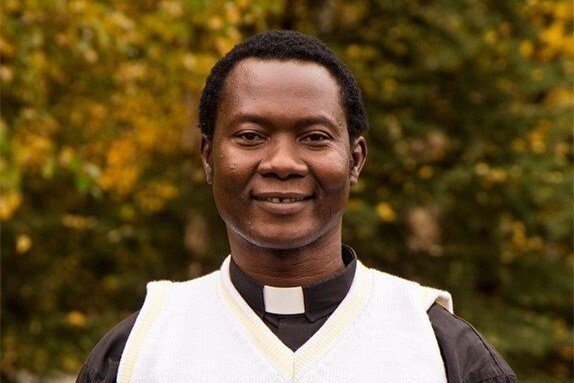Posted on 07/11/2025 14:45 PM (CNA Daily News)
 null / Credit: Wolfgang Schaller|Shutterstock.
null / Credit: Wolfgang Schaller|Shutterstock.
Washington, D.C. Newsroom, Jul 11, 2025 / 10:45 am (CNA).
A recent poll has revealed that the majority of American adults’ beliefs align with recent U.S. Supreme Court rulings supporting parental authority, allowing states to ban transgender treatment for minors, and permitting authorities to require age verification on websites with sexually explicit content.
On June 18, the Supreme Court ruled that Tennessee was permitted to ban medical treatments for minors including hormone therapy, puberty blockers, and surgeries.
On June 27, meanwhile, the high court ruled that public schools in Maryland must allow parents the option to withdraw their children from discussions of LGBT topics if they have religious objections. It also ruled that a Texas law that requires pornography websites to verify that users are at least 18 years old does not violate the Constitution and can remain in effect.
The poll, which was conducted before the rulings were issued, revealed that the American public was mostly in alignment with the final decisions of the Supreme Court.
The survey was completed online April 10-16 among 2,201 U.S. adults by YouGov for its SCOTUSpoll project. The poll was conducted by researchers at the University of Texas, Harvard University, and Stanford University.
It found that the majority of all respondents (64%) said states “should be able to ban” minors from being subject to certain transgender medical treatments.
The numbers were lopsided according to political alignment: While 90% of Republicans and 63% of Independents surveyed said states should be able to carry out bans, only 38% of Democrats did.
The poll also found that 77% of Americans believe schools “must give the ability” for parents to remove their children from conversations on gender and sexuality. The majority of respondents across all political parties agreed, including 89% of Republicans, 69% of Democrats, and 72% of Independents.
Texas is one of 24 states that has enacted a law requiring age verification for porn websites similar to the one voted on by the Supreme Court. The survey found that a high majority (80%) of Americans reported that states should be able to permit verification. This included 88% of Republicans, 75% of Democrats, and 77% of Independents.
Since the Supreme Court ruled on the case involving transgender medical intervention, meanwhile, the Justice Department (DOJ) announced it has sent more than 20 subpoenas to doctors and clinics involved in child transgender medical procedures.
In a July 9 announcement, the DOJ stated the investigations “include healthcare fraud, false statements, and more.”
In the statement, U.S. Attorney General Pam Bondi said: “Medical professionals and organizations that mutilated children in the service of a warped ideology will be held accountable by this Department of Justice.”
Posted on 07/11/2025 13:40 PM (CNA Daily News)
 “When you love the people with whom you disagree, and then you talk about the disagreements, then you’re able to persuade people, potentially,” Brooks points out. “Its your only shot at persuading people, is with love.” / Credit: EWTN News
“When you love the people with whom you disagree, and then you talk about the disagreements, then you’re able to persuade people, potentially,” Brooks points out. “Its your only shot at persuading people, is with love.” / Credit: EWTN News
Washington, D.C. Newsroom, Jul 11, 2025 / 09:40 am (CNA).
Best-selling author, Harvard professor and renowned social scientist Arthur Brooks says the missionary character and approach of Pope Leo XIV is one which all Catholics should emulate.
In an interview with "EWTN News in Depth," Brooks called attention to the new pope’s track record of threading the needle of “speaking the truth in a spirit of love, and that’s a lot more of what we all need to emulate as Catholic people.”
This approach, Brooks said, is a winning one that gives him a lot of hope and optimism for Leo’s pontificate and the future of the Church, which he says is on the cusp of a revival.
Speaking with anchor Catherine Hadro, Brooks said all Catholics are called to missionary work grounded in joy, excellence, and clarity of purpose.
“We need to ask ourselves tomorrow as we go out: Am I being a good missionary or am I not? Is somebody going to say, I like the way that that person lives their Catholic faith or not? Is that attractive or is that unattractive? Those are the choices."
A convert to Catholicism at age 16, Brooks says he considers himself a “secular missionary.” In a recent article in The Atlantic, he wrote that his secular writing, speaking and teaching is the principal way that he shares his faith publicly.
“My approach is basically to be open and easy and natural about my Catholic faith,” said Brooks, who is also the former president of the Washington, D.C.-based American Enterprise Institute think tank.
The two best tools in secular evangelization, Brooks said, are friendship and excellence.
“Be a good friend, be a good person, all the time, impeccable in the way you treat other people and somebody people can rely on and actually love,” Brooks told Hadro.
“And two, be excellent in everything you do. Be the best at what you do…because people want to be around excellence and people want to have good friends,” he added.
Catholics, Brooks said, are called to “magnetize” their faith by “making it natural and normal and excellent” such that it draws people to the faith.
When it comes to speaking truth in a spirit of love, Brooks said we "have a moral obligation to call out things that are wrong when they’re wrong for the good of the person,” noting that when there’s grave sin “we have to call it out.”
“But we will be ineffective in doing so if we don’t do that with love," he emphasized.
“When you love the people with whom you disagree, and then you talk about the disagreements, then you’re able to persuade people, potentially,” Brooks pointed out. “[Y]our only shot at persuading people is with love.”
In his 2023 book Build the Life You Want: The Art and Science of Getting Happier, co-authored with Oprah Winfrey, Brooks offers practical strategies for both emotional and spiritual growth. The book debuted at number one on the New York Times bestseller list.
He continues exploring these themes in his forthcoming book, The Happiness Files, in which he likens the pursuit of happiness to launching a start-up: deliberate, experimental, and mission-driven.
Watch the full “EWTN News in Depth” interview with Arthur Brooks below:
Posted on 07/11/2025 12:52 PM (Detroit Catholic)

Posted on 07/11/2025 12:51 PM (Detroit Catholic)

Posted on 07/11/2025 12:49 PM (Detroit Catholic)

Posted on 07/11/2025 12:45 PM (Detroit Catholic)

Posted on 07/11/2025 12:43 PM (Detroit Catholic)

Posted on 07/11/2025 10:00 AM (CNA Daily News)
 Portrait of St. Benedict (1926) by Herman Nieg (1849–1928); Heiligenkreuz Abbey, Austria; “Exorcism of St. Benedict,” by Spinello Aretino, late 14th century. / Credit: Public domain
Portrait of St. Benedict (1926) by Herman Nieg (1849–1928); Heiligenkreuz Abbey, Austria; “Exorcism of St. Benedict,” by Spinello Aretino, late 14th century. / Credit: Public domain
National Catholic Register, Jul 11, 2025 / 06:00 am (CNA).
Temptations in a fallen city, memories of a beautiful woman, a poisoned chalice, the attacks of an envious priest, curses from a pagan priest, a rock that won’t budge and another that falls on a young monk, a kitchen in flames, a dragon that lurks to devour a fleeing monk, threats from Gothic warlords, and the prospect of a destroyed monastery.
These are some of the attacks that St. Benedict, whose feast the Catholic Church celebrates on July 11, endured throughout his life.
Benedict even had to use force to manifest his authority as abbot over his monks oppressed by the enemy, as related in Father Robert Nixon’s newly compiled and translated book “The Cross and Medal of Saint Benedict: A Mystical Sign of Divine Power” (TAN, 2024):
“Benedict found this monk outside wandering around aimlessly when he should have been in the oratory in prayer. With a certain degree of paternal severity and charitable discipline, he reprimanded him for his lack of wisdom and discernment and struck him with his staff. At this, the monk fell down, motionless. And after that, the devil ... never troubled him again. It was as if the staff of Benedict had not struck the hapless monk but had rather driven away the wicked tempter himself!” (p. 14).
St. Benedict has come to be recognized for the power of his actions against the enemy, alongside St. Michael the Archangel, as a major protector against evil — particularly through the medal that bears his image.
Nixon’s book offers an overview of how the medal rose to prominence as a Catholic devotion and received papal approval, couching it within the story of St. Benedict’s life and the rise of his order of monks.
If you’ve seen the back of a St. Benedict medal, you may have noticed a series of letters. The first set is arranged in and around the shape of the cross: C S P B C S S M L N D S M D. The next set is arranged in a circle around the cross: V R S N S M V S M Q L I V B.
This arrangement first came to serious attention in the year 1647 in relation to the Benedictine Abbey of Metten in Bavaria when it was believed to have prevented a series of diabolic attacks.
Although some of the laity already had medals with these letters engraved, no one at the time understood their meaning. It was only in researching the library’s manuscripts that a 15th-century illustration of St. Benedict pointed to the full prayer they abbreviated:
“Cross of our Holy Father Benedict. May the cross be light to me. May the dragon not be a leader to me. Get behind me, Satan: Never persuade me to vain things. What you like is evil; may you yourself drink your venom!”
Due to a widespread story of the medal preventing the effect of curses and bringing about exorcisms and healings, which Nixon details in his book, its use spread across Europe, with Pope Benedict XIV approving an official blessing for it and granting it indulgences in 1741.
The great father of modern Benedictine monasticism, Dom Prosper Guéranger, speculated why God would grant so many favors to those who invoke his help through St. Benedict’s medal. In an age when “rationalism is so rife,” God has deigned to offer help to those “who put their confidence in the sacred signs marked on the medal” with “strong and simple” faith (Guéranger, “The Medal or Cross of St. Benedict,” author’s preface). It’s as if to laugh at the devil and his plans to pull people away from God through the alleged sophistication of the modern world, overcoming them with simple signs pointing us to the cross and the protection of a holy monk.
Of course, the medal should not be used in a superstitious way. It expresses our faith and confidence in God, which conquers the power of the enemy through the blood of Christ. Within God’s plan of salvation, there are certain key defenders of God’s people. St. Benedict proved himself as one over his own monks in spiritual combat. Through the efficacy of his medal, he has manifested himself as a fatherly defender of all who invoke his help.
Throughout history, the monastic life has served as a constant beacon calling us to greater conversion of life and prayer. Turning to St. Benedict can lead us to embrace some of his spiritual principles, such as humility, obedience, stability, hospitality, the prayerful reading of Scripture in “lectio divina,” and viewing our work as a means of honoring God.
While St. Benedict faced trials in his life as a monk, we all face trials and attacks from the enemy in the Christian life. Sacramentals can help us in our journey of faith, including our efforts to keep evil far away.
St. Benedict medals and rosaries with the medal affixed can be purchased at religious gift stores and can be blessed after purchase. Medals are also available at EWTNRC.com.
This story was first published by the National Catholic Register, CNA's sister news partner, and has been adapted by CNA.
Posted on 07/11/2025 09:00 AM (CNA Daily News)
 St. Benedict. / Credit: Pietro Perugino via Wikimedia (Public domain)
St. Benedict. / Credit: Pietro Perugino via Wikimedia (Public domain)
ACI Prensa Staff, Jul 11, 2025 / 05:00 am (CNA).
Archbishop Enrique Benavent Vidal of Valencia in Spain encouraged the faithful to take advantage of summer vacation to read and delve deeper into the Rule of St. Benedict, as it contains “insights that are useful” for the daily life of all Christians.
In his July 5 weekly letter, the prelate observed that on Friday, July 11, the Catholic Church will celebrate the feast of St. Benedict, the patron saint of Europe who lived between the fifth and sixth centuries.
“The goal that completely guided his life,” Benavent explained, “is reflected in the prologue to the rule he wrote for the monasteries he founded: ‘Who is the man who desires life and wishes to see happy days?’”
St. Benedict “always lived with the desire to achieve an authentic life, ‘true and perpetual life,’ which can only be achieved in the tent of God on his holy mountain. His entire gaze is fixed on this goal. He lives and teaches monks to live this life with their gaze fixed on true life, on God,” he said.
However, the Spanish archbishop pointed out that while St. Benedict originally wrote this rule “to serve as a spiritual path for monks and to organize the life of monasteries, we find insights that are useful for all Christians.”
In his letter, Benavent uses as an example the rule that calls for “not putting anything before the love of Christ.”

“Nothing should come between the Lord and the disciple. The authentic Christian,” the prelate explained, “is one who, in everyday life, values friendship with the Lord above all else and lives all aspects of his life (work, possessions, family life) in such a way that nothing and no one can cause him to lose that friendship.”
He then quoted part of the rule’s prologue, which states that “(they will rest on your holy mountain) those who, fearing the Lord, are not proud of the uprightness of their conduct.”
The archbishop of Valencia noted that “with this advice, St. Benedict enters the depths of the heart and warns us against a temptation that is very common in those who consider themselves ‘good’: Those who strive to live holy lives easily come to attribute good works to their own strength and to praise themselves, forgetting that ‘by the grace of God I am what I am’ and that ‘let he who glories, glory in the Lord.’”
Finally, he mentioned St. Benedict’s exhortation “not to desire to be called a saint before being one, but first to be one.”
Benavent pointed out that this is “a warning to those who live thinking more about appearances than about the reality of their lives,” because “those who live by appearances are more concerned with what others might think or say about them than with the actual reality of their lives. Christians seek above all to live in the truth.”
The archbishop of Valencia ended his letter by stating that “these counsels are not only for those who have embraced monastic life but are criteria that, if we make them a rule of life, correctly guide the spiritual life of every Christian.”
“This rule that St. Benedict wrote for his monks could be good reading for meditation during the summer,” he noted.
This story was first published by ACI Prensa, CNA’s Spanish-language news partner. It has been translated and adapted by CNA.
Posted on 07/11/2025 08:32 AM ()
The director of the largest global fund dedicated to education explains in an interview with Vatican News' Marie Duhamel how the war in Ukraine has dramatically impacted children’s access to education.